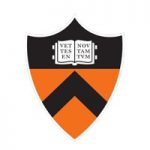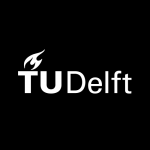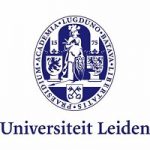项目介绍
COURSES:
During the first two years, students pursue a pattern of course work aimed at preparing them for the general examination and training them in the research techniques of professional scholarship. Students normally participate in three graduate courses per term. Students lacking prior background are encouraged to take undergraduate courses to supplement their graduate training. Although the precise pattern of courses depends on the individual, students plan their programs within the broad outlines set by the general examination. Each course usually meets once a week for three hours. A course may be either the seminar type, centering on individual students preparing research papers, or the more general, reading type, aimed at having students gain a broad acquaintance with a subject or a mixture of both.
In addition to preparing for the general examination, students are advised to take seminars in the history of science that do not fall within their examination fields. Students focusing on European or American science are expected to take at least one course that deals with science, medicine, or technology in the non-Western world, and vice versa. Students are encouraged to look beyond the program as they pursue suitable coursework or language study related to their particular scholarly interests.LANGUAGE(S):
Program students should demonstrate a reading knowledge of two foreign languages as soon as possible after enrollment. French and German are normally recommended, but other languages relevant to the student’s prospective research may be substituted with the approval of the director of graduate studies. Candidates are normally not readmitted for a fifth term of study or permitted to complete the general examination until the language requirement has been satisfied.
The faculty of the Department of History set most of the language examinations. Examinations in some languages, however, may be administered by appropriate language departments at Princeton. Normally the examination consists of two passages to be translated, one with and one without a dictionary. Language examinations will be announced at the beginning of each semester. Other examinations should be scheduled in consultation with the director of graduate studies and (if appropriate) the department involved.PRE-GENERALS REQUIREMENT(S):
Writing Requirement
Students are required to write two research papers based on primary sources before sitting for the general examination. Students often write one of these research papers in the context of a graduate seminar and another based on independent research. The first must be completed and certified by June 15 of the first year of enrollment and the second by April 1 of the second year.
Responsible Conduct of Research
Students are required to fulfill the mandatory Responsible Conduct of Research seminar over the course of their first year.GENERAL EXAM:
The general examination is normally taken at the end of the second year and consists of three sets of written and oral examinations in (1) a major field in the history of science, medicine, or technology; (2) a minor field in another area of history; and (3) one of the following options: (a) a second special field in the history of science, medicine, or technology, (b) a second field in another area of history, or (c) a field in some related subject, for example, philosophy of science, science and technology studies, or anthropology of science. Precise definitions of fields, and special concentrations within them, are worked out in consultation with the director of graduate studies for the Program in the History of Science and appropriate faculty members in the field before the beginning of the fourth semester of graduate study.QUALIFYING FOR THE M.A.:
The Master of Arts (M.A.) degree is normally an incidental degree on the way to full Ph.D. candidacy, but also may be awarded to students who, for various reasons, leave the Ph.D. program. Students who have satisfactorily passed all required coursework (with all incompletes resolved), fulfilled the language requirements in their field of study, and completed the two required research papers may be awarded an M.A. degree.TEACHING:
The Department of History tries to provide part-time teaching experience for most of the advanced graduate students who desire it. Teaching assistantships generally involve two to four classroom hours a week and should not interfere with progress toward completing the dissertation. Appointments are made by the department chair, according to the needs of the undergraduate teaching schedule, to advanced graduate students.POST-GENERALS REQUIREMENT(S):
Prospectus:
Students will normally participate in the department’s mandatory Dissertation Prospectus Workshop in June of the second year.
To be eligible, students must have passed their general examinations and have done so no later than their fourth semester of enrollment, or have special permission from the Director of Graduate Studies to participate. Passing the Prospectus Seminar is a required part of degree work in the department. Students are expected to participate actively and devote their time and effort to completing a fully shaped prospectus before the summer is over.
Continuation as an enrolled student into the spring semester of the G3 year will be contingent upon approval of the prospectus. Students are required to have a meeting together with their adviser and first reader (or with their two co-advisers) in the weeks following the seminar. The purpose of this meeting is to provide an opportunity for the student to benefit from informal conversation with their key mentors regarding the intellectual and practical plans for the project. Their formal agreement is then given with the approval form, which should be signed by both the adviser and the first reader following the meeting, and which must be filed with the Graduate Office before December 1 of the student’s third year, or within six months of completing the general examination for students whose exams are split or delayed. DISSERTATION AND FPO:
Students devote their last three years of study to the research for and writing of a dissertation. The dissertation ordinarily falls within a special field in the history of science that constitutes part of the student’s general examination. Where research requires an absence abroad or elsewhere in this country, it usually takes place during the fourth year so that students may most effectively combine completion of the dissertation with the search for employment during the fifth year. Upon completion of the dissertation and its approval by at least two readers (usually, but not necessarily, members of the Department of History), the student takes a final public oral examination devoted to a defense of the dissertation and a discussion of its implications for further work.
The Ph.D. is awarded after the candidate’s doctoral dissertation has been accepted and the final public oral examination sustained.
联系方式
电话: 609-258-3000相关项目推荐
KD博士实时收录全球顶尖院校的博士项目,总有一个项目等着你!






